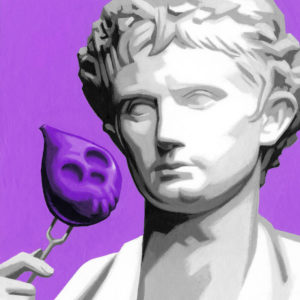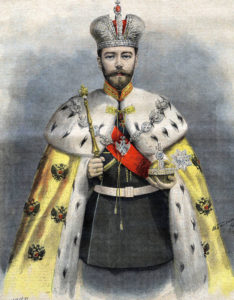From ‘cantarella’ to polonium, governments have used toxins to terrorize and kill their enemies
The Wall Street Journal, September 7, 2018

ILLUSTRATION: THOMAS FUCHS
Among the pallbearers at Senator John McCain’s funeral in Washington last weekend was the Russian dissident Vladimir Kara-Murza. Mr. Kara-Murza is a survivor of two poisoning attempts, in 2015 and 2017, which he believes were intended as retaliation for his activism against the Putin regime.
Indeed, Russia is known or suspected to be responsible for several notorious recent poisoning cases, including the attempted murder this past March of Sergei Skripal, a former Russian spy living in Britain, and his daughter Yulia with the nerve agent Novichok. They survived the attack, but several months later a British woman died of Novichok exposure a few miles from where the Skirpals lived.
Poison has long been a favorite tool of brutal statecraft: It both terrorizes and kills, and it can be administered without detection. The Arthashastra, an ancient Indian political treatise that out-Machiavels Machiavelli, contains hundreds of recipes for toxins, as well as advice on when and how to use them to eliminate an enemy.
Most royal and imperial courts of the classical world were also awash with poison. Though it is impossible to prove so many centuries later, the long list of putative victims includes Alexander the Great (poisoned wine), Emperor Augustus (poisoned figs) and Emperor Claudius (poisoned mushrooms), as well as dozens of royal heirs, relatives, rivals and politicians. King Mithridates of Pontus, an ancient Hellenistic empire, was so paranoid—having survived a poison attempt by his own mother—that he took daily microdoses of every known toxin in order to build up his immunity.
Poisoning reached its next peak during the Italian Renaissance. Every ruling family, from the Medicis to the Viscontis, either fell victim to poison or employed it as a political weapon. The Borgias were even reputed to have their own secret recipe, a variation of arsenic called “cantarella.” Although a large number of their rivals conveniently dropped dead, the Borgias were small fry compared with the republic of Venice. The records of the Venetian Council of Ten reveal that a secret poison program went on for decades. Remarkably, two victims are known to have survived their assassination attempts: Count Francesco Sforza in 1450 and the Ottoman Sultan Mehmed II in 1477.
In the 20th century, the first country known to have established a targeted poisoning program was Russia under the Bolsheviks. According to Boris Volodarsky, a former Russian agent, Lenin ordered the creation of a poison laboratory called the “Special Room” in 1921. By the Cold War, the one-room lab had evolved into an international factory system staffed by hundreds, possibly thousands of scientists. Their specialty was untraceable poisons delivered by ingenious weapons—such as a cigarette packet made in 1954 that could fire bullets filled with potassium cyanide.
In 1978, the prizewinning Bulgarian writer Georgi Markov, then working for the BBC in London, was killed by an umbrella tip that shot a pellet containing the poison ricin into his leg. After the international outcry, the Soviet Union toned down its poisoning efforts but didn’t end them. And Putin’s Russia has continued to use similar techniques. In 2006, according to an official British inquiry, Russian secret agents murdered the ex-spy Alexander Litvinenko by slipping polonium into his drink during a meeting at a London hotel. It was the beginning of a new wave of poisonings whose end is not yet in sight.










